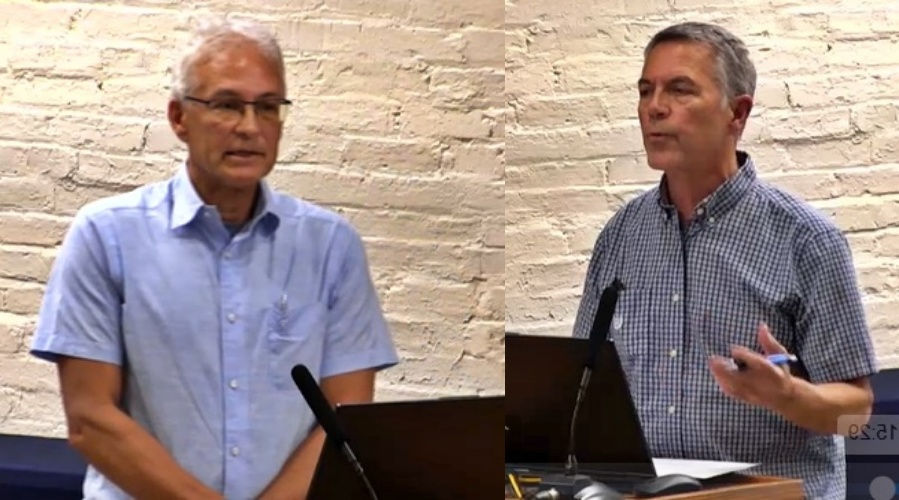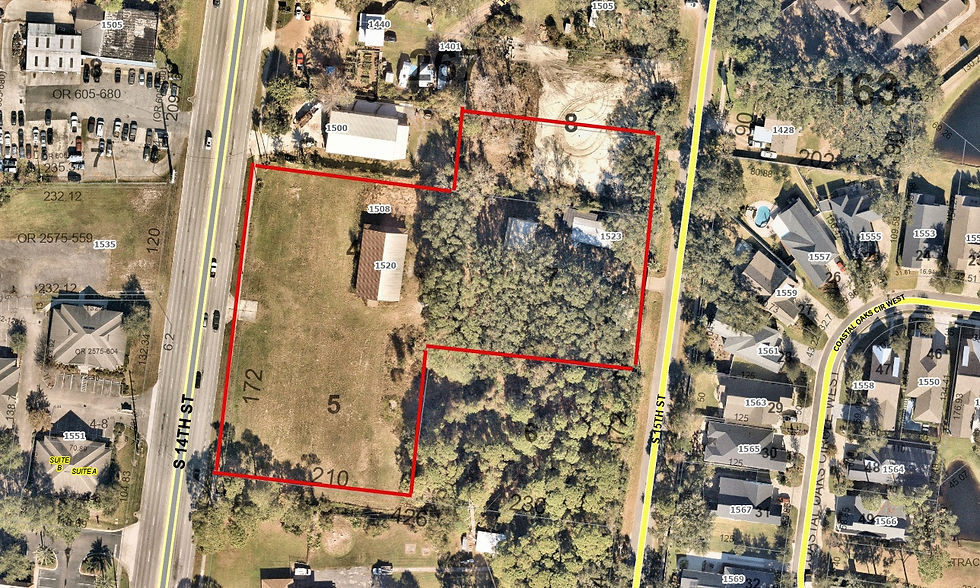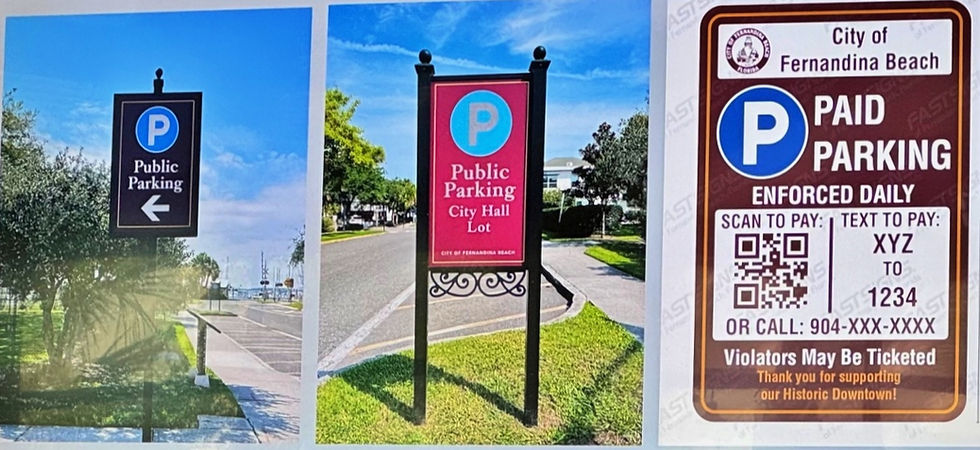Residents Demand City Reconsider Parking Variance for 71-unit 'Live Local' Apartment complex
- Mike Lednovich
- Aug 7, 2025
- 3 min read

A proposed 71-unit residential complex with an adjacent medical office building is facing intensifying public backlash, as residents from the surrounding neighborhoods are urging city officials to reverse a parking variance they say threatens to overwhelm the area’s infrastructure and sidestep established land use law.
At Tuesday night’s Fernandina Beach City Commission meeting, approximately 18 residents living near the project site — located between 14th and 15th Streets, next to the Coastal Oaks community — took to the podium to protest what they argue is a dangerously inadequate parking plan for the development.
The land, owned by Darius Property LTD and put forward by Gillette & Associates, has received approval to move forward with a reduced parking requirement — a decision many locals call both legally questionable and logistically reckless.
The core issue centers on the city’s decision to grant the project a variance that reduces the required parking from two spaces per dwelling unit to just one. According to Fernandina Beach’s Land Development Code (LDC), specifically section 7.01.04A, the 71-unit development should be required to provide at least 160 parking spaces. However, city planning staff justified the variance by citing the Live Local Act, a piece of Florida legislation intended to encourage affordable housing development by easing certain zoning restrictions.
Residents contend that the law is being misapplied.
“The Live Local Act does not compel cities to waive parking requirements,” said Fred Pugh, who spoke on behalf of a coalition of concerned residents and submitted a petition with 309 signatures opposing the project in its current form. “It clearly states that developments must still satisfy the municipality’s land development regulations for multifamily housing, including parking and setbacks.”

Pugh cited Florida Statute 166.04151, noting that while the legislation allows for increased building height and density, it does not override local authority on parking. He warned that reducing parking at this scale will not only create traffic congestion but also push the overflow into nearby residential areas and business lots.
“If young adults move into these apartments… there could be three, four adults. All have jobs, all have cars,” he said. “If it’s a young working family with children, nowadays both adults probably work. They need a place to park.”
“There’s no parking on 14th Street. If they park on 15th Street, they’ll convert that into a one-lane road with two-way traffic,” Pugh continued.
The debate over the Darius project’s parking plans dates back to late 2024, when initial city correspondence confirmed the need for 160 spaces. However, in December of that year, city staff reversed course, arguing that the project qualified for less stringent C-3 zoning standards under the Live Local Act.
That interpretation was sharply challenged Tuesday night by Jim Crotti, a resident of South 15th Street, who has tracked the issue for months.
“C-3 standards only apply to developments in the Central Business District. This site is not in the Central Business District — not even close,” Crotti told commissioners. “The Live Local Act doesn’t grant developers a blank check to ignore the rules.”
Crotti emphasized that the city’s own Land Development Code explicitly states that where there is a conflict in standards, the more restrictive rule applies — a legal safeguard intended to protect not just new developments, but also the surrounding communities they impact.
Crotti added that the city’s land development code is intended “to protect the existing developments,” and that when conflicts arise, “the more restrictive standards shall apply.” He argued the city had “misinterpreted the law in making their decision and did not consider the impact of the surrounding neighborhoods.”
Pugh closed his remarks by calling on the city to reverse the parking variance, stating that the decision “is foisting the responsibility and the needs of this development back on their neighbors and the community.”
Crotti and Pugh both urged commissioners to instruct city staff to reassess the parking requirements using the correct legal framework and consistent zoning standards.
The commission did not take immediate action, but several members acknowledged the level of public concern. None of the current commissioners could recall a parking space variance being granted to the developer.
"I know there's a medical building and they talked about sharing parking. We'll just have to see the details of the new project submittal," Minshew said.
As the project remains in planning phases, residents indicated they would continue to monitor the city’s next steps and push for compliance with existing regulations.




Mike, Thank you for the coverage. Just to clarify: Public comment relative to 'variance' was incorrect. No variances were given nor requested. The objection is relative to the application of parking standards for C3 zoning when the project is C1 & C2. And, information given to us in November was by phone call upon receipt of the records request for the submitted plans. We gave a detailed assessment of our objection to the clerk, should you care to see a copy of it feel free to contact me. Thank you again for your support. Annette Crotti